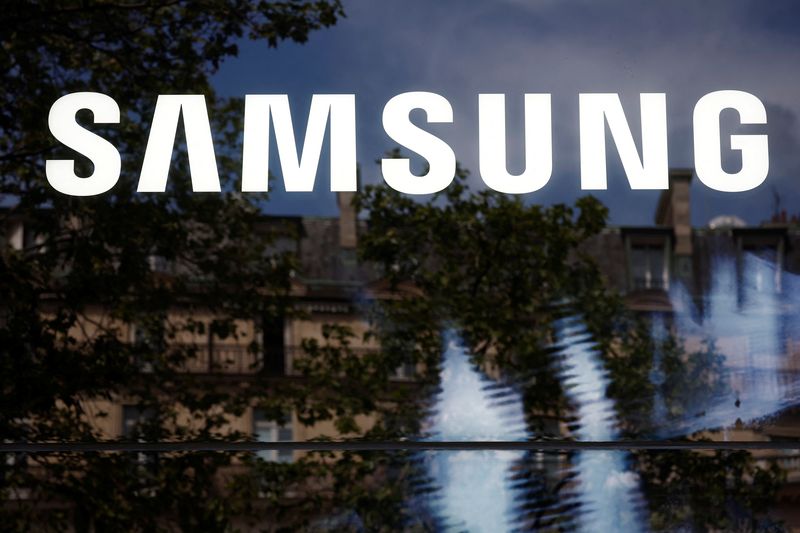By Neil Jerome Morales and Heekyong Yang
MANILA/SEOUL (Reuters) - Samsung Electronics (KS:005930) is not interested in spinning off its contract chip manufacturing business as well as its logic chip designing operation, Chairperson Jay Y. Lee told Reuters on Monday.
Analysts say Samsung's businesses of designing and manufacturing chips for other clients are incurring billions of dollars of annual losses due to weak demand and have been dragging down the overall performance of the South Korean company, which is the world's largest memory chipmaker.
Samsung has been expanding into logic chip designing and contract chip manufacturing to lower its reliance on bread-and-butter memory chips. Logic chips are used to process data.
Lee announced his vision in 2019 to overtake Taiwan's TSMC as the world's largest contract chipmaker by 2030.
The company has since announced billions of dollars of investments in contract chip manufacturing, building new plants in South Korea and the United States.
However, several sources familiar with the matter have told Reuters that Samsung has struggled to win big orders from customers to fill up the new capacity.
Asked if Samsung was considering carving out the chip manufacturing business called foundry or its System LSI logic chip designing business, Lee told Reuters: "We are hungry to grow the business. Not interested in spinning (them) off."
Lee was speaking during a visit to the Philippines where he accompanied South Korean President Yoon Suk Yeol to a summit with President Ferdinand Marcos Jr.
TAYLOR CHIP FACTORY PROJECT IS 'TOUGH'
Lee acknowledged that Samsung was facing challenges on the new chip factory it is building in Taylor, Texas saying: "That's a little bit tough because of (a) changing situation, election".
He did not elaborate and Samsung Electronics did not comment further.
South Korea has been a major foreign investor in the United States in recent years, lured by Washington's financial support for sectors such as green energy and chips, but some companies including EV battery maker LG Energy Solution have turned cautious this year due to potential policy changes after the U.S. presidential election in November.
Samsung pushed back in April the production schedule for the project to 2026 from its earlier plan of late 2024 and said operations would be managed in a phased manner depending on customer demand.
The move underscores challenges it faces in its efforts to overtake bigger rival TSMC, which counts Apple (NASDAQ:AAPL) and Nvidia (NASDAQ:NVDA) as major customers.
Last year, Samsung posted an operating loss of 3.18 trillion won ($2.4 billion) from the foundry and System LSI businesses, according to average estimates of nine analysts reviewed by Reuters.
It does not provide a performance breakdown of the two businesses.
Analysts estimate that the two operations would report another loss of 2.08 trillion won this year.
In 2017, Samsung Electronics separated its chip manufacturing from the design business but foundry customers remain concerned that Samsung might share their technology secrets with its design unit, analysts say.

"In principle, it is better off for Samsung to split its foundry business to gain trust from customers and focus on the business," said Lee Jong-hwan, a former Samsung engineer and a professor in System Semiconductor Engineering at SangMyung University.
However, he said it would be harder for the foundry unit to survive as a standalone business as it could lose access to financial support from the memory chip business.